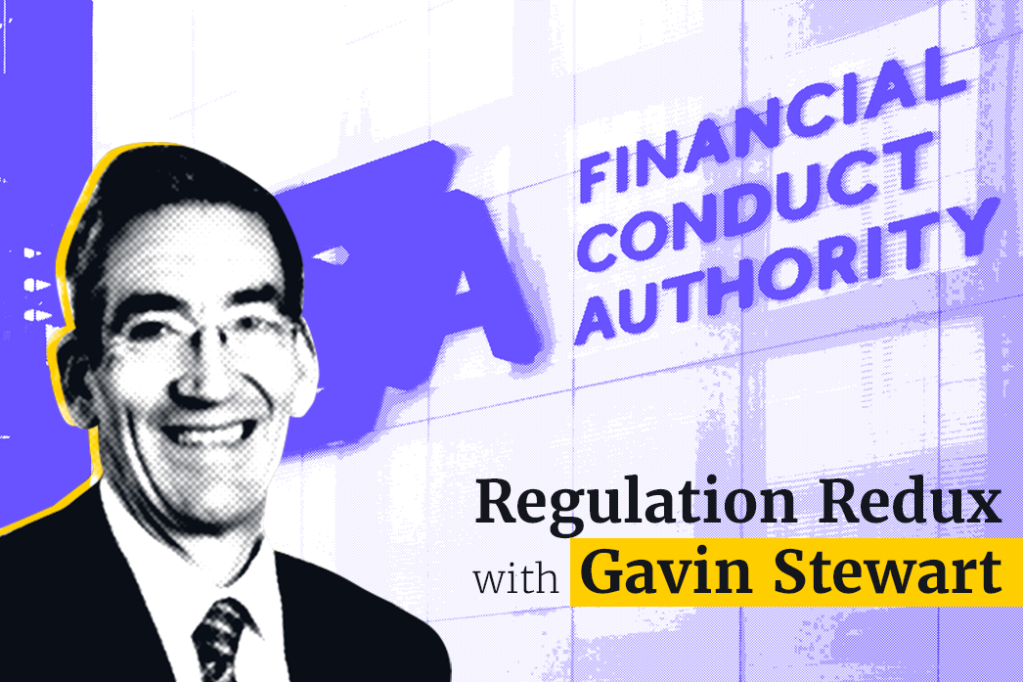Many have commented on the lack of transparency in the recently-published FCA Board minutes from November. The contrast with the October minutes is stark and represents a dismaying reversal of what had seemed to be a steady, if incremental, effort by the regulator’s Board to draw back the curtain on its deliberations.
To give a couple of examples of the extent of the cutting back:
- November’s CEO report has five items and, essentially, only the title is given. October’s, while not exactly fulsome, included relevant information on turnover and the level of contractors used to help with change projects, as well as revealing that the regulator is revisiting its communications approach to complaints and the FCA Register.
- While the October item on Strategic Prioritisation and Financial Planning for 2024/25 wasn’t expansive, it was a good half page and each of the bullets told us something about the Board’s approach and areas of interest. In contrast, the November item on Sustainability Disclosure Requirements (SDR) and investment labels contains only headings.
More is possible
It’s worth emphasising that what is missing is not sensitive in any sort of confidentiality way. Indeed, it has often been the case – with MifID 2 for example – that a good deal of detail, well beyond what would realistically be in Board minutes, is available on the FCA’s website through the publication of working group minutes.
However, these documents can be hard to find if you don’t know where to look and it might be an idea for the regulator to provide links from Board discussions to the latest public information on the items it discusses.
Why the cuts?
Given the reason for effectively neutering the minutes isn’t confidentiality and that we do not have an official explanation (as far as I know), it seems reasonable to speculate. There are two possible options:
- The FCA has received one or more Freedom of Information requests off the back of recent minutes that have triggered some sort of embarrassment and a decision has been taken, possibly at the urging of Communications, to publish only minimal information.
- The newly formed Legal Division is flexing its muscles, has reviewed the FCA’s corporate publications, and has advised that the regulator’s approach was overly transparent and is exposing the Authority to unnecessary legal risk.
Both of these seem unlikely, but both are plausible in the current environment…
A (made up) possible future
To end on a constructive note, I’ve invented below what a Board minute for the first bullet of the CEO’s report might look like. This is idealized, but is a mash up of several FSA/FCA Board reports and discussions I have been party to.
5.1.i Challenges faced by smaller banks in the current economic environment
Supervision, with help from Data Analysis, has identified a group of firms whose business model is particularly exposed to the current economic environment and a project has been established, in consultation with the PRA, to monitor these firms closely over the coming period. The firms are all in the flexible portfolio but, for an initial six months, a small team of supervisors has been assigned as named contacts for these firms. The firms are aware and are providing additional data, initially through to April 2024. XX is the ExCo sponsor for the project.
The Board discussed the criteria that had been used to identify the cohort of firms, and whether there was a clear line between the firms identified and the next most exposed. It also asked for confirmation that the project was in line with the FCA’s published risk appetite, and that there would be no impact on the resources and timelines of other priorities. Satisfactory assurances were provided on all of the above.
The Board acknowledged the pressures to include a larger number of banks in the exercise but felt it was important that the organization continued to hold its feet to the fire and not react to events that were within its published risk appetite. To do so would pull resources away from more important priorities and create a precedent that would cause future problems and potentially damage the FCA’s overall effectiveness. It was agreed that the Board would receive a short update in February.
How accountable does parliament want the FCA to be?
Stepping back a little, it’s still not obvious to me how much Westminster really wants regulators to be accountable and transparent, or is it more comfortable not really engaging with the detail, thereby keeping its hands relatively “clean” and so having the option of throwing rocks when something goes wrong?
Gavin Stewart is an independent commentator on financial regulation; former regulator; novelist; ex-international rower and sports administrator. He has 27 years’ experience working for financial services’ regulators (Bank of England, FSA & FCA), holding a wide variety of roles including as a Bank of England Supervisor, FSA Head of Strategy, Planning & Performance, and FCA Chief Risk Officer.













